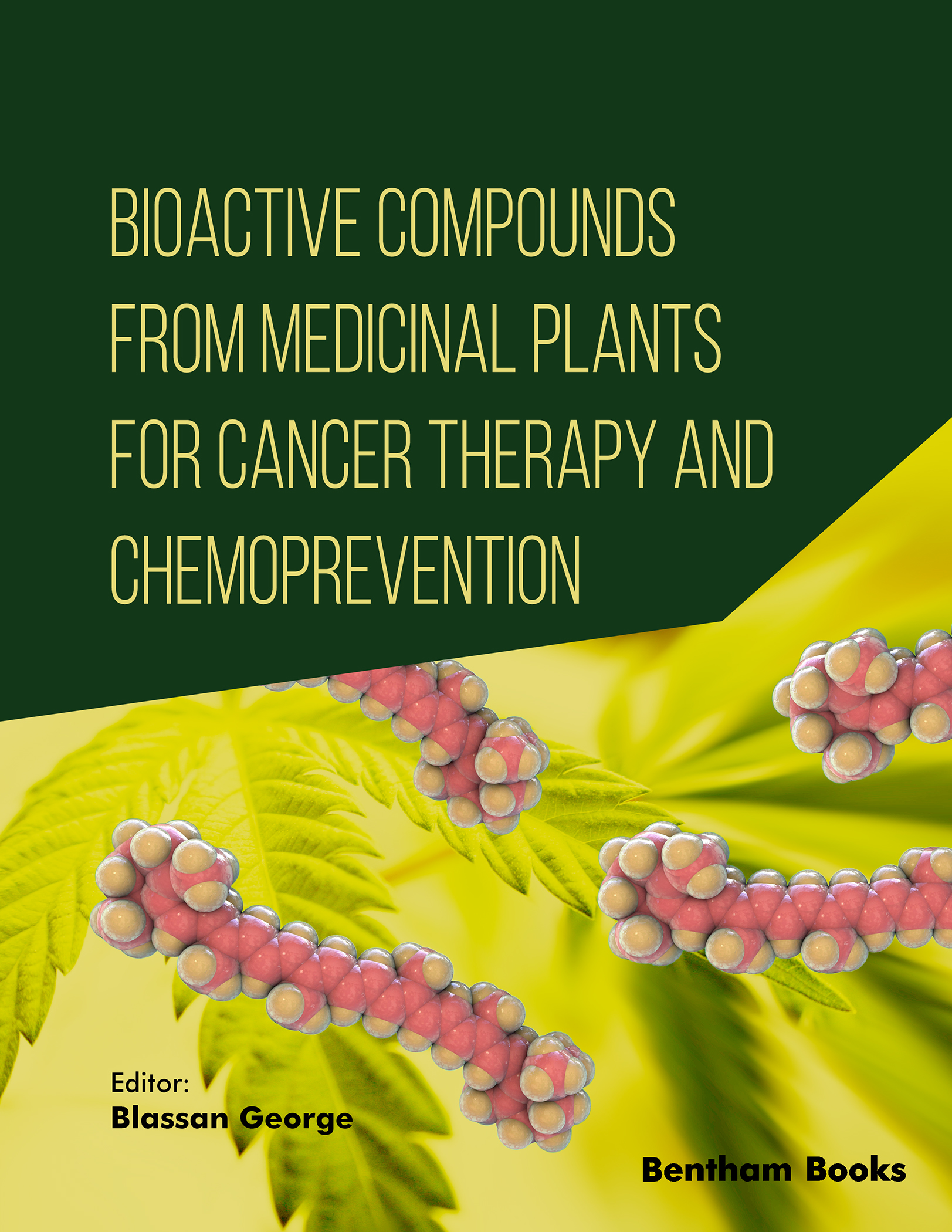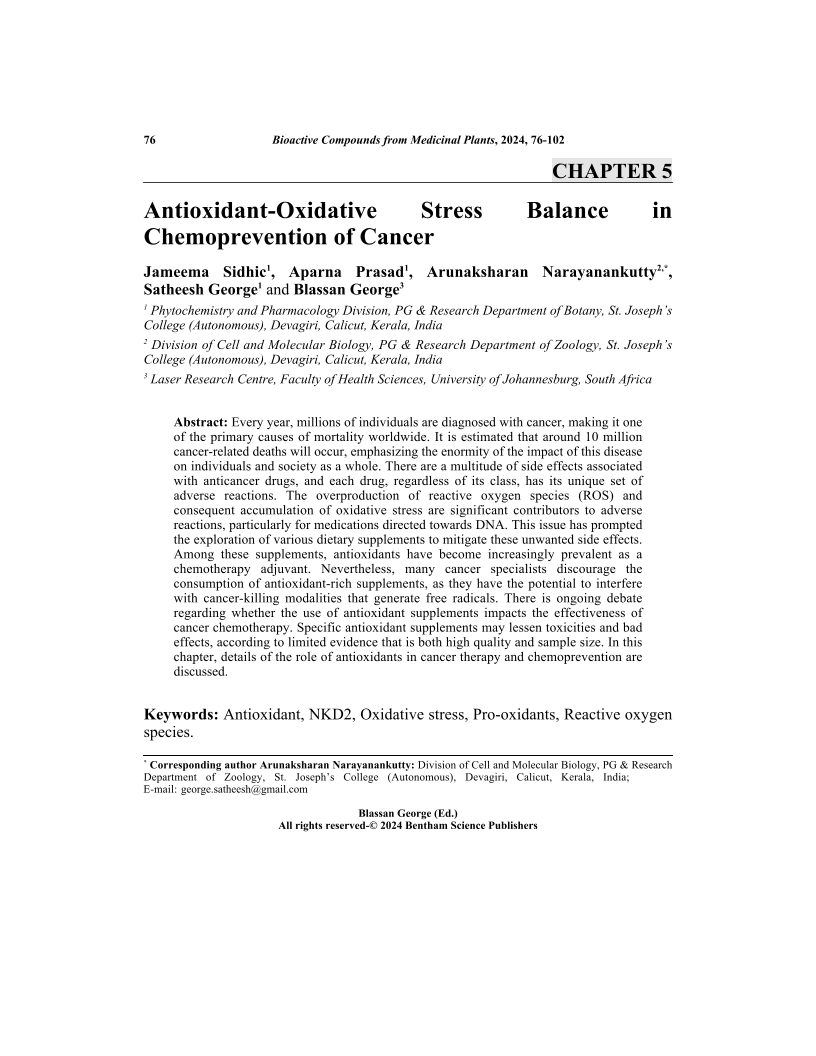Antioxidant-Oxidative Stress Balance in Chemoprevention of Cancer

- Authors: Jameema Sidhic1, Aparna Prasad2, Arunaksharan Narayanankutty3, Satheesh George4, Blassan George5
-
View Affiliations Hide Affiliations1 Phytochemistry and Pharmacology Division, PG & Research Department of Botany, St. Joseph's College (Autonomous), Devagiri, Calicut, Kerala, India 2 Phytochemistry and Pharmacology Division, PG & Research Department of Botany, St. Joseph's College (Autonomous), Devagiri, Calicut, Kerala, India 3 Division of Cell and Molecular Biology, PG & Research Department of Zoology, St. Joseph's College (Autonomous), Devagiri, Calicut, Kerala, India 4 Phytochemistry and Pharmacology Division, PG & Research Department of Botany, St. Joseph's College (Autonomous), Devagiri, Calicut, Kerala, India 5 Laser Research Centre, Faculty of Health Sciences, University of Johannesburg, South Africa
- Source: Bioactive Compounds from Medicinal Plants for Cancer Therapy and Chemoprevention , pp 76-102
- Publication Date: September 2024
- Language: English
Antioxidant-Oxidative Stress Balance in Chemoprevention of Cancer, Page 1 of 1
< Previous page | Next page > /docserver/preview/fulltext/9789815238549/chapter-5-1.gif
Every year, millions of individuals are diagnosed with cancer, making it one of the primary causes of mortality worldwide. It is estimated that around 10 million cancer-related deaths will occur, emphasizing the enormity of the impact of this disease on individuals and society as a whole. There are a multitude of side effects associated with anticancer drugs, and each drug, regardless of its class, has its unique set of adverse reactions. The overproduction of reactive oxygen species (ROS) and consequent accumulation of oxidative stress are significant contributors to adverse reactions, particularly for medications directed towards DNA. This issue has prompted the exploration of various dietary supplements to mitigate these unwanted side effects. Among these supplements, antioxidants have become increasingly prevalent as a chemotherapy adjuvant. Nevertheless, many cancer specialists discourage the consumption of antioxidant-rich supplements, as they have the potential to interfere with cancer-killing modalities that generate free radicals. There is ongoing debate regarding whether the use of antioxidant supplements impacts the effectiveness of cancer chemotherapy. Specific antioxidant supplements may lessen toxicities and bad effects, according to limited evidence that is both high quality and sample size. In this chapter, details of the role of antioxidants in cancer therapy and chemoprevention are discussed.
-
From This Site
/content/books/9789815238549.chapter-5dcterms_subject,pub_keyword-contentType:Journal -contentType:Figure -contentType:Table -contentType:SupplementaryData105

